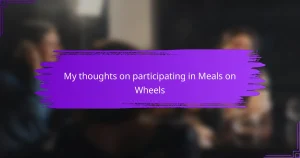Key takeaways
- Hospital volunteering roles provide vital support, enhancing patient experiences through empathy and human connection.
- Communities, such as Obama supporters, inspire individuals to engage in volunteering, merging idealism with practical action for positive change.
- Volunteering sharpens empathy and brings fulfillment, creating meaningful connections that contribute to healing beyond medical care.
- Barack Obama’s advocacy for community service underscores volunteering as a means of leadership and fostering genuine community ties.
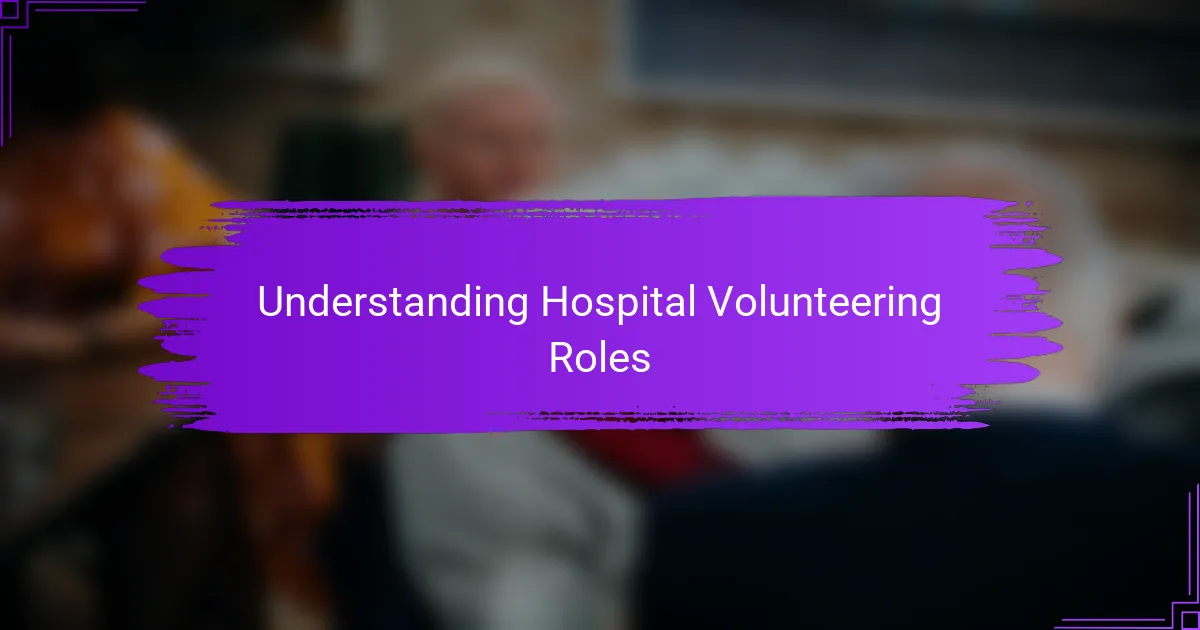
Understanding Hospital Volunteering Roles
When I first considered volunteering at a hospital, I realized how diverse the roles can be. From guiding patients through busy corridors to assisting with paperwork or simply offering a kind smile, every task plays a vital part in easing the hospital environment. Have you ever thought about how small actions can create big impacts in such stressful settings?
One experience that stuck with me was helping at the reception desk. It wasn’t just about directing visitors; it was about being a calming presence in moments of confusion or anxiety. These roles require empathy and patience, qualities I believe we all can grow through volunteering.
Understanding these responsibilities helped me appreciate that hospital volunteering is more than just filling shifts. It’s about being a bridge between medical care and human connection, which makes the effort deeply rewarding. Have you ever felt that sense of purpose from an unexpected place?
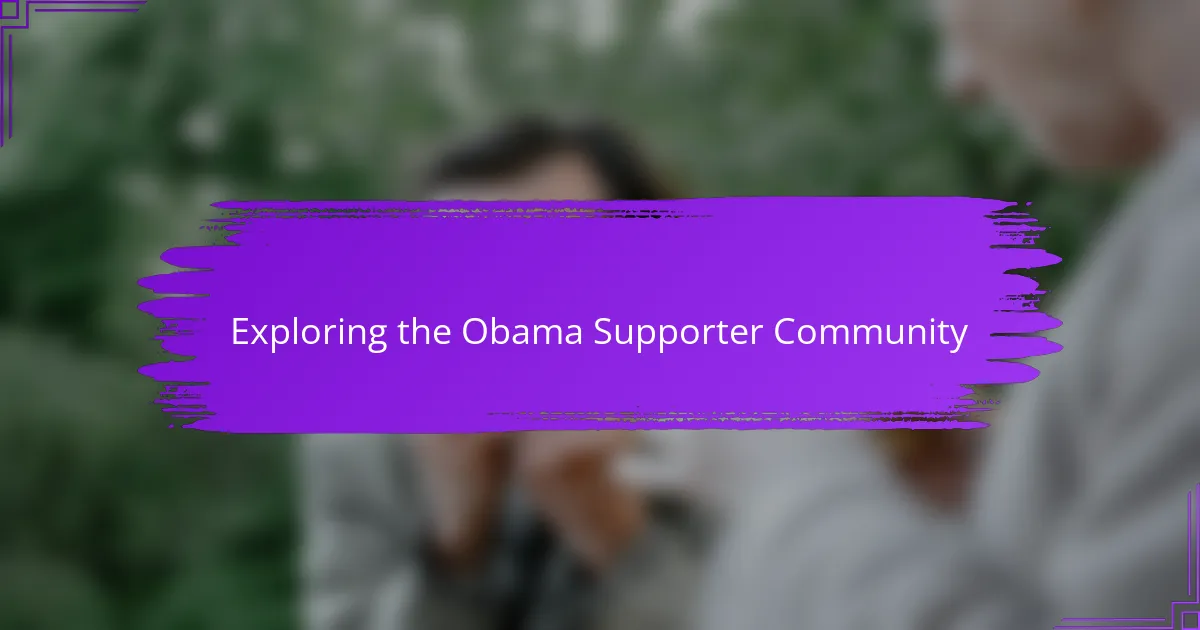
Exploring the Obama Supporter Community
The Obama supporter community often strikes me as a group deeply committed to service and making a difference, which aligns closely with the spirit behind hospital volunteering. When I think about their emphasis on hope and change, it reminds me how volunteering is another way to embody those values in everyday life. Have you noticed how communities like this inspire action beyond politics and into real-world compassion?
I’ve seen how members of the Obama supporter community come together around shared ideals, creating networks that encourage stepping up in small but meaningful ways. It’s as if the energy from political engagement fuels their passion for hands-on help, like volunteering at hospitals where empathy truly matters. This blend of idealism and practical support struck me as a powerful force for good.
Reflecting on this, I wonder how many volunteers perhaps first connected with their sense of purpose through communities centered on leaders like Obama. For me, this intersection between social values and direct service adds a layer of meaning. Doesn’t it feel more inspiring to serve when you see it as part of a larger movement for positive change?
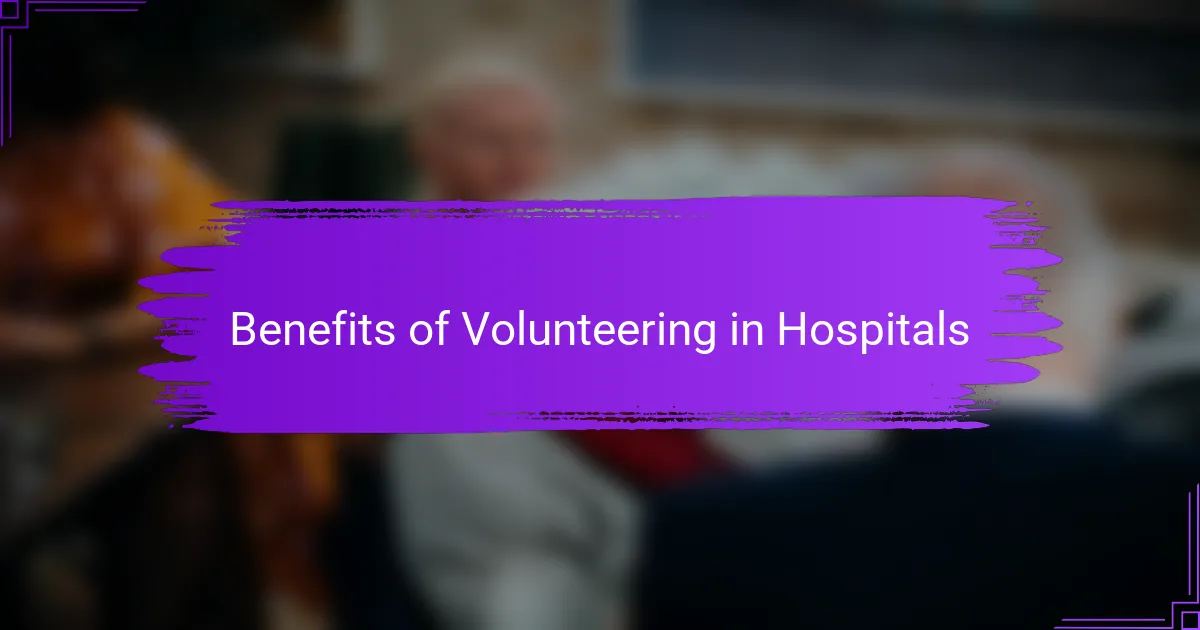
Benefits of Volunteering in Hospitals
Volunteering in hospitals has enriched my life in ways I hadn’t expected. It’s incredible how even small acts, like holding a patient’s hand or offering a warm smile, can bring comfort during tough times. Have you ever noticed how those moments of connection linger longer than any task?
One thing I’ve learned is that volunteering sharpens your sense of empathy. Being around people facing health struggles taught me to listen more attentively and appreciate the resilience in others. It made me reflect: how often do we miss chances to simply be present for someone?
Plus, volunteering offers a unique kind of fulfillment that’s hard to find elsewhere. Knowing that your time helps ease someone’s worry or brightens their day creates a deep sense of purpose. Doesn’t it feel powerful to contribute to healing beyond medicine, through genuine human care?
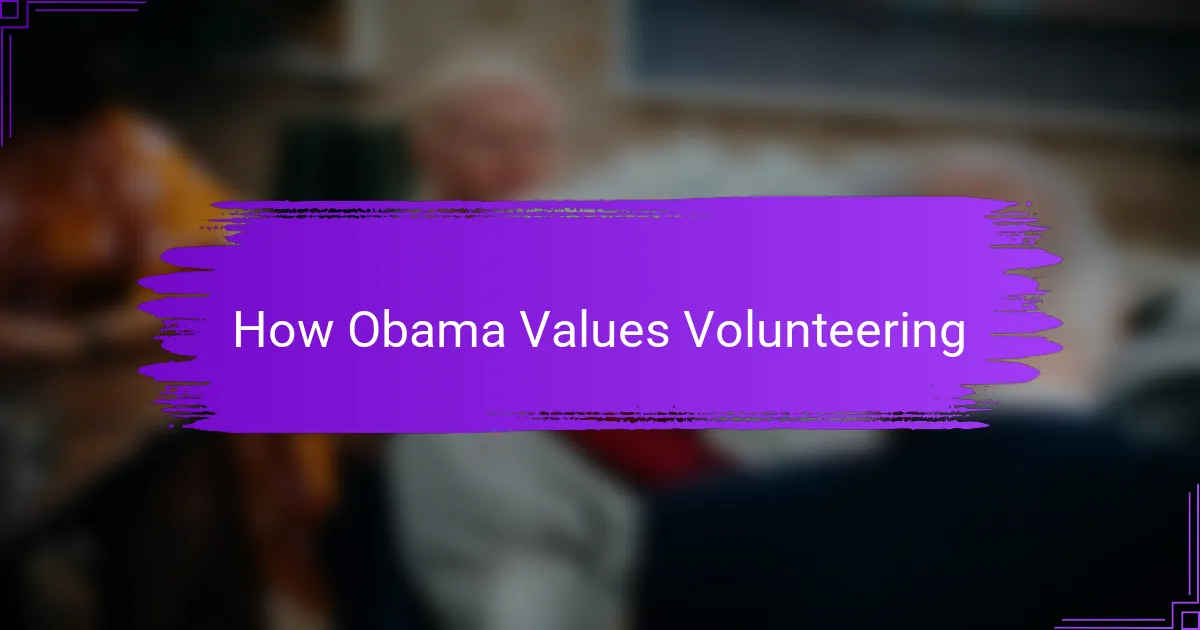
How Obama Values Volunteering
Barack Obama often spoke about the importance of community service as a way to strengthen our ties to one another. I find it inspiring how he framed volunteering not just as a duty, but as a powerful act of hope and shared responsibility. Have you ever felt that volunteering connects you to something bigger than yourself? That’s exactly the spirit Obama encouraged.
In his speeches, Obama emphasized that giving time and compassion helps build the foundation for a healthier and more equitable society. I remember hearing him describe volunteering as a form of leadership, which struck me deeply—it reminded me that anyone can lead through small, everyday actions. How often do we think of volunteering as an opportunity to lead by example?
What resonates most with me is how Obama saw volunteering as a way to embody the change he spoke about during his presidency. It’s more than charity; it’s about fostering genuine community and understanding. When I volunteer, I feel that connection firsthand, and it makes me appreciate Obama’s call to serve with both heart and courage.
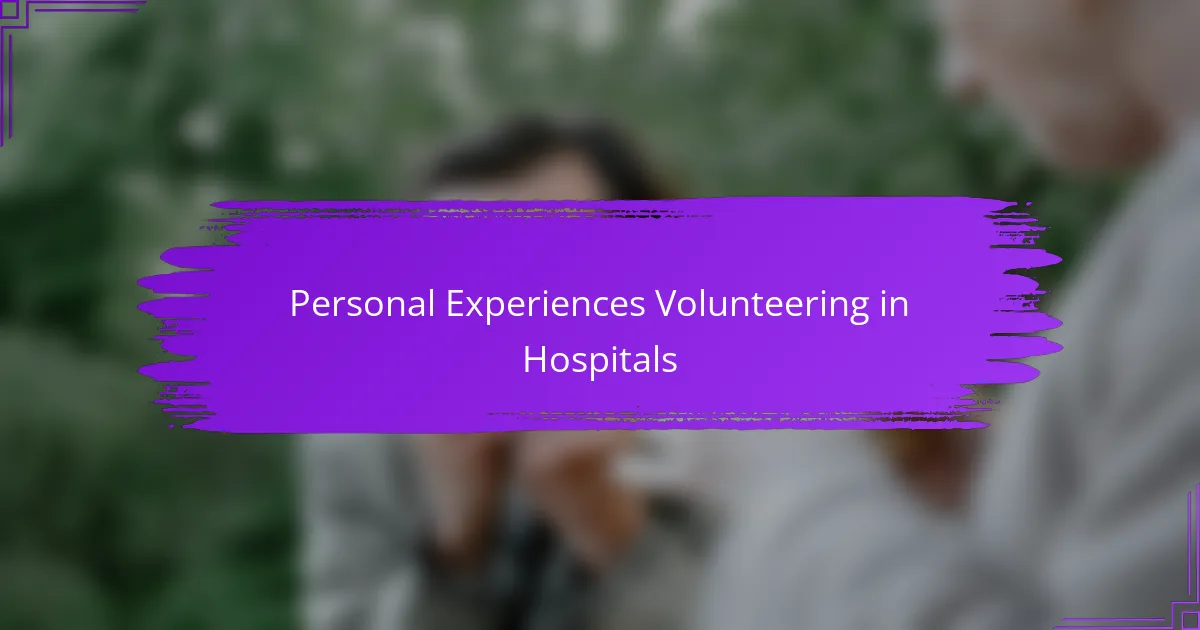
Personal Experiences Volunteering in Hospitals
One memory that stays with me is the day I spent sitting with an elderly patient who was waiting for test results. We didn’t say much, but just being there seemed to ease her loneliness. Have you ever experienced how silent companionship can speak louder than words in moments like these?
Sometimes, the sheer unpredictability of hospital life caught me off guard. I recall rushing to help a family who was clearly overwhelmed, trying to offer directions while calming their nerves. It made me realize how important it is to stay composed and compassionate, even when the day feels chaotic.
Volunteering in hospitals also taught me about the small victories—like seeing a patient smile after a nurse’s encouraging words or knowing I helped someone find their way. These moments, though brief, reminded me why I wanted to give my time in the first place. Don’t those little sparks of hope make all the effort worthwhile?
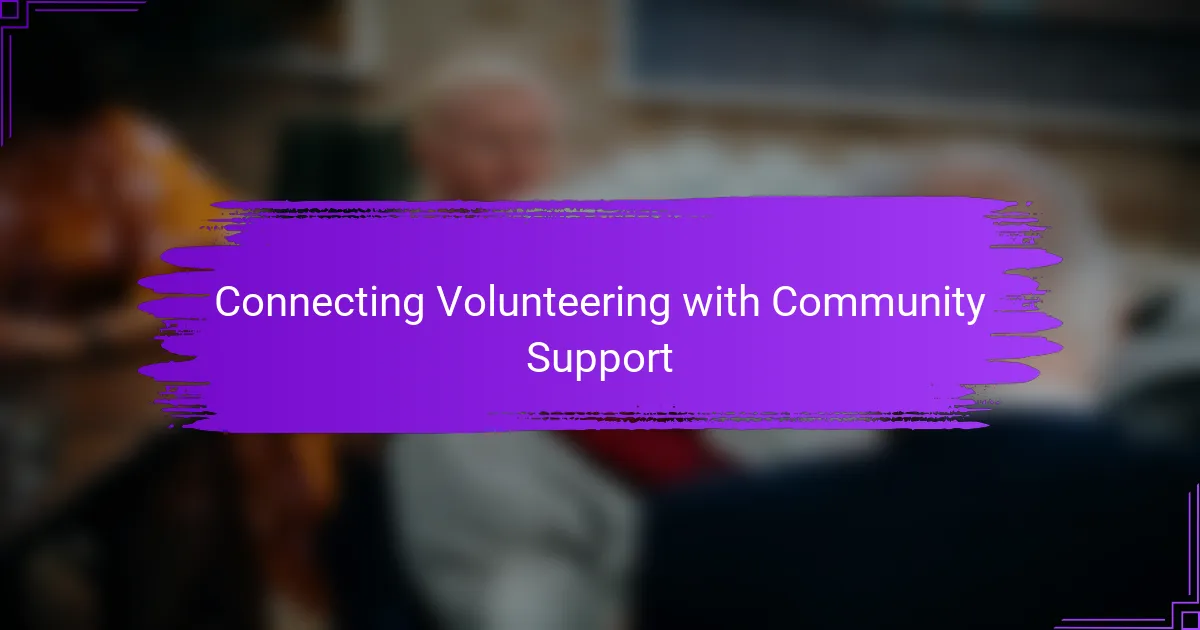
Connecting Volunteering with Community Support
Volunteering in hospitals feels like stepping into the heart of community support. When I’m there, it’s clear how interconnected we all are—each volunteer and staff member contributing to a larger purpose. Have you ever noticed how even the smallest gestures, like helping someone find the waiting room, ripple out to create a supportive network around patients and their families?
From my experience, hospital volunteering is more than just offering aid; it’s about strengthening the ties that hold a community together. I remember one time when a fellow volunteer and I worked alongside nurses to comfort a nervous patient’s family. Witnessing that blend of care—from medical professionals and volunteers alike—made me appreciate how every role enriches the community’s resilience.
Thinking about it, do we often realize how our actions combine to form a safety net for those in vulnerable moments? Volunteering gave me a tangible sense of belonging to something bigger than myself, echoing the collective spirit of service that communities like the Obama supporter network cherish deeply.


